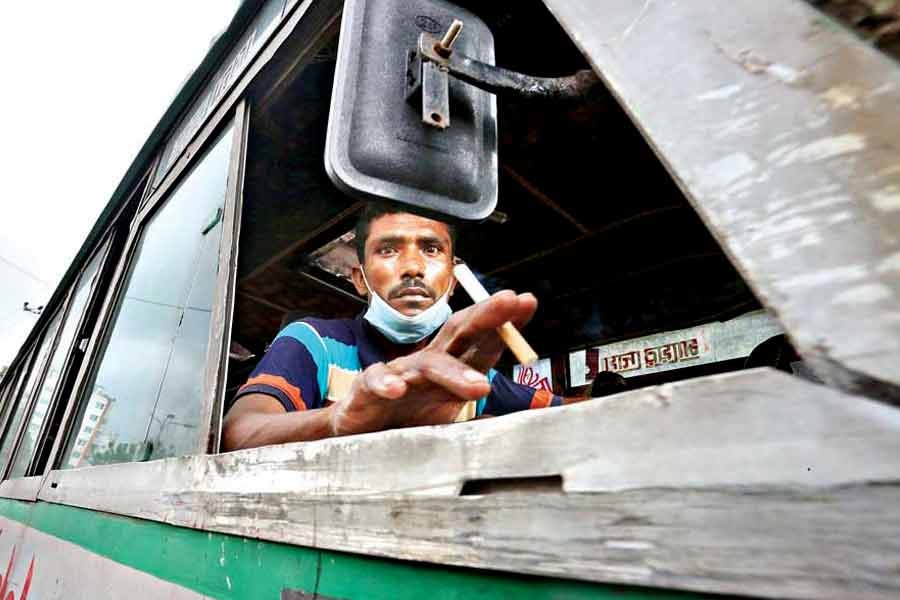
Published :
Updated :

How many drivers of the country's public buses have the minimum training? The answer in short is, no specific number is available. What is confirmed is that most of the drivers don't have the necessary training on traffic rules and regulations, road safety measures and passenger care. Different media reports that at least one-third of the bus drivers in Dhaka don't have a valid driving licence. Even those who have, mostly managed those through dubious channels.
The Bangladesh Road Transport Authority (BRTA) is yet to improve the driving test and licence issuance system. The outcome is accident-prone reckless driving of the public buses in most cases.
Again, it is almost impossible to provide on-the-job training for bus drivers. Bus owners have little interest to allow time for drivers to obtain training. There is a tendency among most bus owners and drivers to ignore formal training. Leaders of the bus-truck owners and workers associations also back the attitude. Instead, they argue that drivers would gain their skill gradually by driving on the road. This kind of approach helps perpetuate the chaotic regime where bus drivers, helpers or assistants become drivers without any formal training.
There is, however, no alternative to training for better and safe driving. Beside a small number of vehicle driving training centres of the Bangladesh Road Transport Corporation (BRTC), there are some 100 BRTA-approved training centres across the country. Except for the BRTC training centres, other centres generally provide training for light vehicles like cars and microbuses. Nirapod Sarak Chai ( We want safe roads) movement, initiated by actor Ilias Kanchan in 1993, arranged training for drivers. The BRAC also initiated driving training for in-service bus and truck drivers. It focuses on modifying the attitude and behaviour of drivers towards road safety and driving. The efforts get little response.
Ilias Kanchan has faced a series of humiliation and nasty attacks by leaders of bus-truck owners and workers associations. Lawmaker Shajahan Khan, also acting president of the Bangladesh Road Transport Workers Federation, openly launched a series of verbal attacks on Kanchan as well as the movement. He also asked transport owners and workers to boycott the movement, accusing him of taking a stance against drivers. This kind of negative and aggressive attitude, promoted and backed by some influential political leaders makes it very difficult to arrange for training and reorientation.
Drivers and other staff of public buses need both technical training and emotional orientation. This kind of training includes engagement with drivers making them aware of road rules and also rein in rash driving that endangers the lives of pedestrians and passengers travelling in small vehicles. In India, Delhi police have introduced this kind of training since 2019 where it is mandatory for cluster bus depots. In the morning counselling sessions, drivers are given lessons on traffic rules and trained to be considerate. When drivers arrive in the morning to start their duty, the police welcome them through loudspeakers. Then urge them to drive carefully, adding that their family members are also awaiting their safe return at home. They are also advised to be more careful with pedestrians. This kind of counselling may be tried in Dhaka as well.


 For all latest news, follow The Financial Express Google News channel.
For all latest news, follow The Financial Express Google News channel.